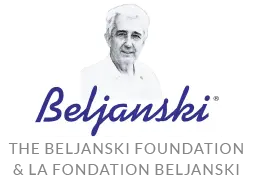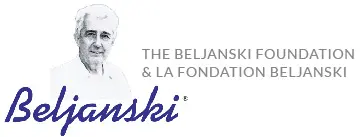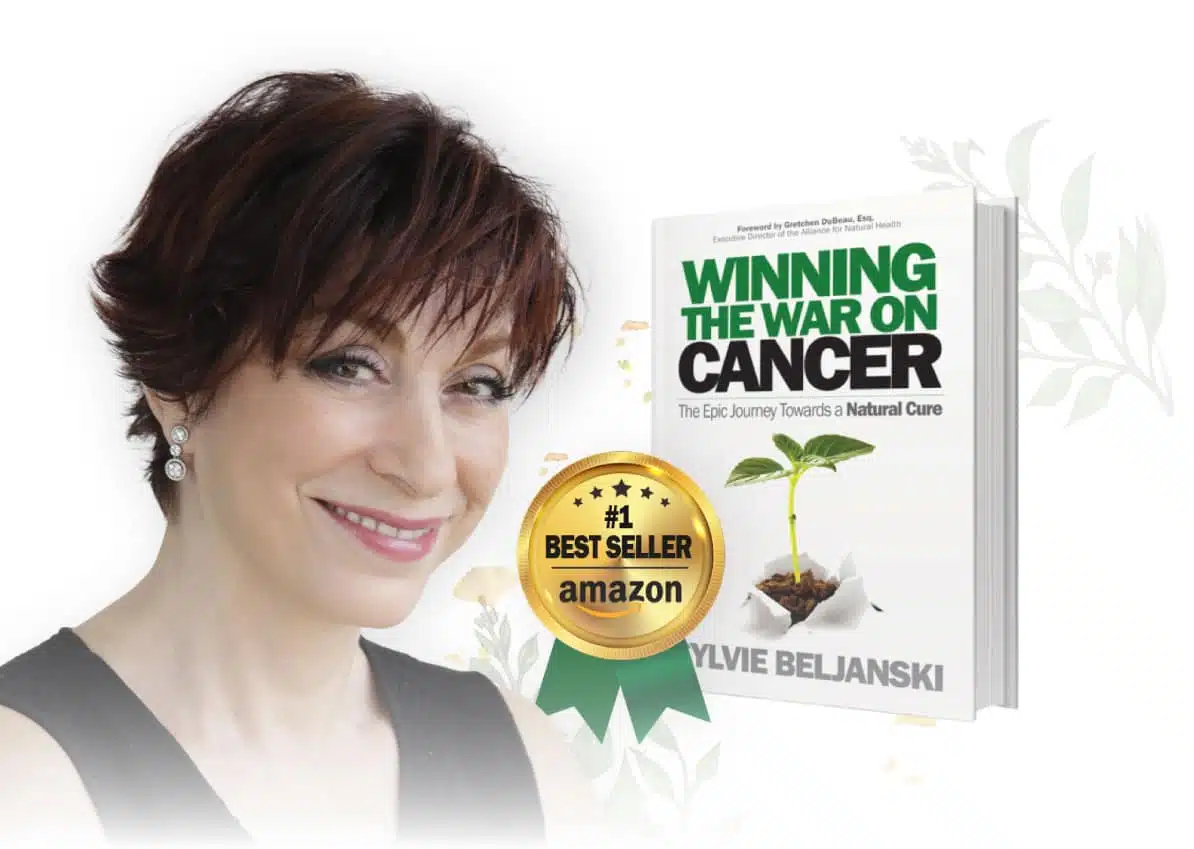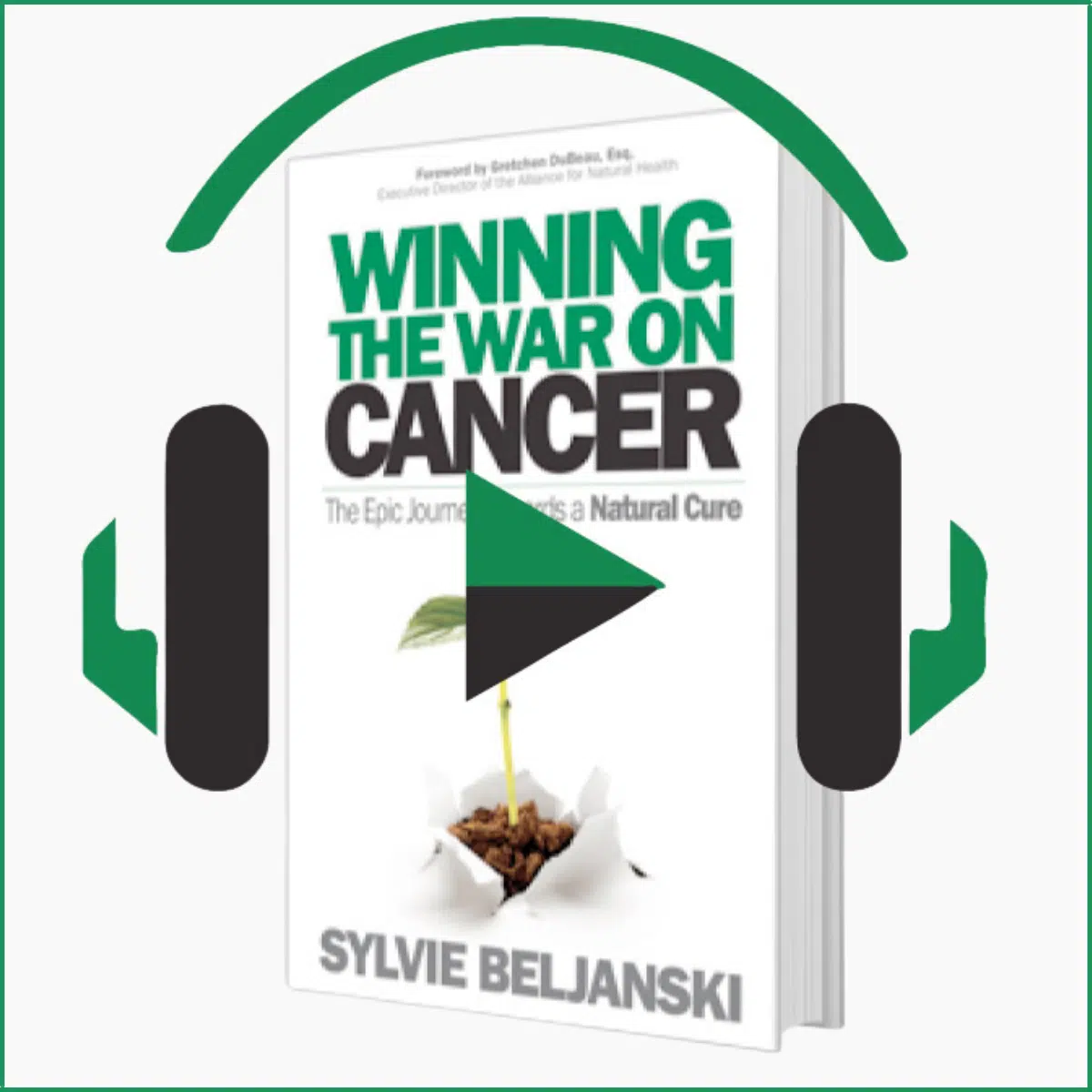Support our research programswhen holistic meets science
The Beljanski Foundation’s overall mission is to study and share knowledge of effective non-toxic natural answers that work both alone and in synergy with traditional western medicine to cure cancer and other chronic diseases the natural way.
The importance of scientific research
The World Health Organization predicts that the number of cancers will double by 2030, and more and more of us are hearing those terrible words: “You have cancer”. Cancer has grown into a billion dollar industry, but conventional cancer treatments still involve surgery, chemotherapy, and radiation therapy. Fortunately, there are natural molecules capable of selectively blocking the proliferation of cancer cells, without destroying healthy cells.
For research on these molecules to continue, we need your support …


A New Breakthrough Cancer Research Program!
Breast cancer accounts for approximately 15% of all cancer deaths among women (less common in men than in women, but it can still occur ) and breast cancer stem cells (BCSCs) are thought to be responsible for the recurrence and metastasis of breast cancer. Why? Because unlike other cancer cells, which can be killed by chemotherapy and radiation therapy, BCSCs have the ability to survive and become resistant to these treatments, leading to tumor regrowth and metastasis.
Therefore, understanding the biology and behavior of BCSCs is essential for the development of more effective breast cancer treatments.
Research on breast cancer stem cells (BCSCs) is crucially important.
By targeting BCSCs specifically, it may be possible to prevent tumor recurrence and metastasis, leading to improved outcomes for breast cancer patients.
The Beljanski Foundation is uniquely positioned to tackle this task:
The Beljanski Foundation has already led two successful research programs on the role of cancer stem cells in tumor growth and progression, which have led to two partnerships with Kansas University Medical Center and two publications, to study the effects of two plant extracts on Pancreatic Cancer Stem Cells:
- “Extract of the Medicinal Plant Pao Pereira Inhibits Pancreatic Cancer Stem-Like Cell In Vitro and In Vivo.“
- “Inhibition of pancreatic cancer stem cells by Rauwolfia vomitoria extract.“
While those two studies have concluded that the two botanicals Pao pereira and Rauwolfia vomitoria both represent potential therapeutic agents for the treatment of pancreatic cancer by targeting cancer stem cells, the Beljanski Foundation has also seen exciting results on breast cancer with a study comparing different kinds of green teas:
It would be, therefore, extremely valuable to see if those results could be reproduced and extended to Breast Cancer Stem Cells.
With this new program and for the first time ever, the three botanicals (Pao pereira, Rauwolfia vomitoria and green tea extract) will be mixed and studied together for their ability to inhibit breast cancer stem cells. Further research will also be needed to evaluate the safety and effectiveness of this approach in clinical trials and to understand its potential limitations and side effects.
Thanks to the generous support from the inaugural Beljanski Integrative Cancer Conference, the breast cancer stem cell research project has been fully funded—an exciting milestone in the mission to better understand and combat this challenging disease. With the research now underway, scientists at Kansas University Medical Center are working to uncover vital insights that could lead to new, natural approaches for targeting breast cancer stem cells and reducing relapse.
Building on this success, the next phase of research will focus on prostate cancer stem cells, demonstrating a continued commitment to expanding knowledge across multiple cancers. This research aims to develop more precise, non-toxic treatments that enhance patient outcomes and offer hope to those affected by these life-threatening diseases.


Breast Cancer Stem Cell Research Project
Fully Funded from the Inaugural Beljanski Integrative Cancer Conference
Thanks to your generous donations at the Inaugural Beljanski Integrative Cancer Conference, we were able to fully fund the research project on Breast Cancer Stem Cells in partnership with Kansas University Medical Center.
This project will lead to the development of more effective, less toxic, and affordable treatments for breast cancer, ultimately improving the outcomes for patients. Your contributions made a significant difference in the battle against this disease.
Prostate Cancer Stem Cell Research Project
Launching at the 2025 Beljanski Integrative Cancer Conference – Help Us Raise $240,000
Building on the success of our breast cancer study, the 2025 Beljanski Integrative Cancer Conference will kick off our next groundbreaking initiative: testing the same natural extracts on prostate cancer stem cells. With your support, we aim to raise $240,000 to fully fund this vital research and explore new non-toxic treatments for prostate cancer.
Donate today to support this critical study and help us bring hope to those affected by prostate cancer. Every contribution moves us closer to natural, life-saving solutions.

Join us!
Be part of the next breakthrough in cancer research! Join us at the 2025 Beljanski Integrative Cancer Conference to be the first to discover the results of the breast cancer stem cell research and contribute to funding innovative prostate cancer stem cell studies. Together, we can drive progress toward natural, life-saving cancer treatments.

Long COVID Clinical Trial
The Beljanski Foundation is sponsoring a new clinical trial for patients with Long COVID because of the urgent need for a new and successful treatment. Anecdotal reports from patients experiencing lingering symptoms from an infection with SARS-CoV-2 started to emerge shortly after the beginning of the pandemic, and the term “Long COVID” was coined to name this condition and alert the scientific community. Upwards of 65 million people worldwide are now suffering from this condition. The goal is to test whether the administration of a special preparation of small RNA fragments, originally developed by Dr. Mirko Beljanski, will work by stimulating stem cells in the bone marrow to produce new immune cells. Previous research conducted on this special preparation at Cancer Treatment Centers of America confirmed its safety and effectiveness for treating thrombocytopenia (low platelets) caused by chemotherapy. Thrombocytopenia has been seen in a significant number of Long COVID patients, and low platelets are associated with fatigue – a major symptom of Long COVID. The trial will also reveal the potential of the RNA fragments to re-balance immunity in these patients.
While the critical role of RNA primers was first discovered by Okazaki, those short segments of RNA acting as primers for initiating the synthesis of new strands of DNA were originally developed by Dr. Beljanski, a French Biologist from the Pasteur Institute in Paris, France. The fragments work by stimulating stem cells in the bone marrow to produce our immune cells. They have been available as dietary ingredients in the US since the 90s, and it is a commercial preparation made available by Maison Beljanski, which will be used for the clinical trial. Enrollment for the clinical trial is already on its way in Europe. The findings are expected to provide valuable insight into whether improving bone marrow function and patient immunity is a pathway for successful Long COVID treatment.
“Platelet levels have been measured in depressed patients and have been found to be decreased when compared to normal controls. Therefore, interference in this process might be a promising avenue for further research to address mild thrombocytopenia in people with Long COVID, along with the most common side effects of this condition, which are fatigue and depression,” says Dr. John Hall, Director of Research at the Beljanski Foundation.


Why is it important to support the Beljanski Foundation?
The Beljanski Foundation’s mission is to honor the legacy of Dr. Mirko Beljanski by advancing scientific research on natural compounds for the prevention and treatment of cancer and other chronic diseases. We are dedicated to conducting rigorous scientific research, using the latest techniques and technologies, to ensure that our findings are accurate and reliable. We are also committed to sharing our knowledge and expertise with the scientific community and the public, to promote greater awareness and understanding of the potential benefits of natural compounds for human health.
Your support of cancer research by The Beljanski Foundation is critically important for several reasons:
- Funding for cancer research: Your support provides much-needed funding for cancer research. With government funding for cancer research often limited to conventional synthetic therapies, philanthropic donations are often the primary source of funding for many research projects involving natural compounds.
- Innovation: Donations to The Beljanski Foundation will support innovative research projects that may not be able to secure funding from traditional sources. These projects may have the potential to lead to breakthrough discoveries that could transform cancer treatment and care.
- Accelerating progress: Funding helps to accelerate progress in cancer research by allowing collaborations between researchers and institutions, and other programs that can help move promising research forward more quickly.
- Public awareness: By supporting cancer research initiatives, donors can help to build momentum for the fight against cancer, inspiring others to get involved and make a difference.
The Beljanski Foundation is a 501 (c)(3) and donations to The Beljanski Foundation are tax-deductible to the extent allowable by law.

Previously Funded Research Program
The new experiments are focused on melanoma, and more specifically, the potential beneficial effects of the yellow leaf Gingko extract for an anti-melanoma effect.
Melanoma, the most serious form of skin cancer, is on the rise. Exposure to sunlight, weakened immunity and age are all risk factors for melanoma, which if it’s not caught early, is deadly. Conventional treatments include surgery, followed by immunotherapy or chemotherapy, each of which may have limited success and are also associated with negative side effects. An alternative therapeutic approach to melanoma free of toxicity and side effects is needed now.
We know from Mirko Beljanski’s work that melanomas over express and release enzymes called ribonucleases (RNAases) that are normally involved in processing large RNA molecules into smaller fragments with different functions. The RNAases are secreted by melanomas and circulate in the bloodstream. Beljanski speculated that the secretion of abnormally high levels of these enzymes from melanomas was a marker of their cancer pathology. He went on to show that the yellow leaf Ginkgo extract suppresses the activity of the secreted RNAases. There are a total of 15 different RNAses that could be targeted by the extract, but there is one enzyme of particular interest because it can play a role in melanoma cancer progression.
Angiogenin is an RNAase that serves to stimulate the recruitment of new blood vessels allowing further growth and spread of a tumor. Angiogenin is the signal released by cancer cells that triggers the process of angiogenesis, the establishment of new vasculature that provides the tumor with nutrients and oxygen. Knowing that the yellow leaf Ginkgo extract is a general inhibitor of melanoma released RNAases, we want to find out if angiogenin is one of the enzymes that is targeted. Our next experiment is to test the hypothesis that yellow leaf Ginkgo specifically inhibits angiogenin. If the extract inhibits angiogenin, then it could help slow melanoma advance by preventing the development of new blood supply to the tumor.
Note that suppressing angiogenin activity is not a direct cytotoxic effect on cancer cells like the induction of apoptosis by Pao pereira and Rauwolfia vomitoria; rather it could limit tumor growth by denying sustenance. This means that the Ginkgo extract could be used in combination with the two anticancer plant extracts to provide a triple threat to melanoma: direct killing of the cancer cells by Pao and Rauwolfia, and denying the tumor’s lifeblood by Ginkgo. Animal studies would be useful to demonstrate this prospective synergy.
When Beljanski discovered the inhibitory effect of the Ginkgo extract on RNAases, it was in the context of skin fibrosis. He found that skin exposed to radiation (e.g. radiotherapy) undergoes fibrosis accompanied by release of RNAase enzymes. He also found these enzymes are released by melanomas as well as breast and pancreatic cancers and leukemia. Recent studies have expanded the list of cancers that secrete these enzymes. So if our experiments prove that the yellow leaf Ginkgo extract is effective against angiogenin from melanoma, it is likely to be useful for inhibiting blood supply and limiting growth of numerous additional cancers by this mechanism.
This activity of the yellow leaf Ginkgo extract could be a breakthrough in cancer therapy providing nontoxic inhibition of vascularization of many kinds of tumors.

Skin Cancer Research: Melanoma
Our skin cancer research is focused on melanoma—the most serious kind of skin cancer. Two plant extracts, green tea extract blend (OnkoTea) and Golden Leaf of Ginkgo Biloba (Ginkgo V), will be studied for their anti-melanoma activity.
Phase 1: Fully Funded
The anti-melanoma effects of the green tea blend are shown in a recent publication from Kansas University Medical Center. And we are already in the process of looking at a golden leaf of Ginkgo Biloba for a synergistic effect to fight melanoma. Mirko Beljanski had already shown that this extract was able to inhibit fibrosis in irradiated tissues.¹ In this phase 1 study, not only have we been able to confirm Beljanski’s results in the United States, but also observed that the Ginkgo extract seems to nicely inhibit various RNAses released by melanoma cells and linked to cancer progression.
1. E. CAUSSE, T. NAWROCKI, M. BELJANSKI, “Human Skin Fibrosis RNase Search for a Biological Inhibitor-Regulator“. Deutsche Zeitschrift für Onkologie, 26, 5, 1994, pp. 137-139.
Phase 2: Fully Funded
We recently initiated a new study with precisely Ginkgo extracts prepared from golden leaves, provided by Maison Beljanski. We are investigating its activity in the proliferation of various cancerous lines as well as its activity to regulate ribonucleases.
For this new study, we will examine whether melanoma cells secrete or contain more ribonuclease than normal skin cells (fibroblasts). And we’ll look at the action of the golden yellow leaf extract provided by Maison Beljanski on ribonucleases in these cells, hoping to show how the extract can inhibit melanoma cells.
And as skin is exposed, we will explore the topical in addition to the oral approach.

Pao pereira extract: Suppression of Cytokine IL-6 in Hyperinflammation
Beljanski demonstrated that the Pao pereira extract suppresses cytokine IL-6 induced proliferation of brain cancer cells (glioblastoma). He showed that the extract significantly reduces the amount of IL-6 in the cancer cells. IL-6 is also induced in some viral infections and in the case of COVID-19, it is one of the prominent cytokines in the hyperinflammation response that is associated with severe viral infections.
Share



